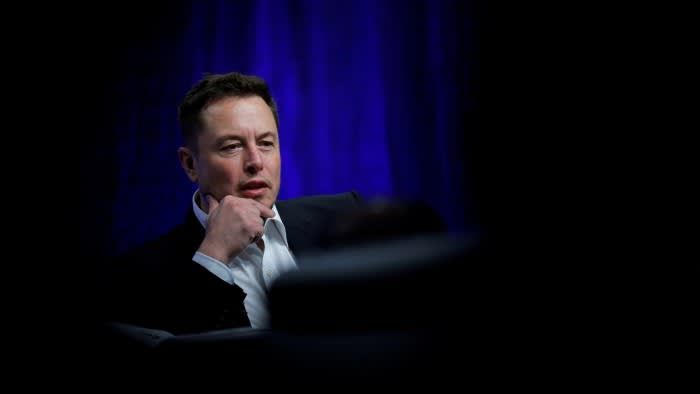Court ruling on Elon Musk’s pay questions the worth of star chiefs

Gain free access to the Editor's Digest.
Every week, Roula Khalaf, who is the Editor of the FT, chooses her preferred tales and compiles them into a newsletter.

Looking back, it was all about personal connections. The thing is, Elon Musk's personal attorney was also the top lawyer for Tesla. This played a big role in the recent ruling from a Delaware corporate law court. They decided that Tesla's 2018 compensation plan, which could have given Musk up to $55.8 billion, was not fairly awarded. The court found that the way the company managed the stock grants was biased against regular shareholders.
A significant element was that the former legal adviser had close connections with Musk. Judge Kathaleen McCormick declared that she was unable to differentiate whose benefits the corporate attorney had been primarily advocating for.
The court found the pay deal to be just as outrageous in terms of its amount. Musk was instructed to hand back the shares. It's no surprise that the court had a negative view of the boardroom, given Musk's lack of commitment to professional conduct. However, there was much debate and interest surrounding the court's decision on what is considered to be fair compensation for a CEO leading a successful public company.
The court mentioned that the salary agreement was 250 times higher than the average pay for top executives. However, the lawyer for the board argued that Musk would only receive the entire amount if Tesla managed to meet difficult operational and financial goals. Moreover, Tesla experienced an impressive growth of $600bn in value. The board's legal advisor pointed out that Musk's compensation was just 6 percent of the company's total stocks.
According to the court, Tesla was required to negotiate with Musk in the same way as they would with an independent third party. The judge pointed out that Musk already owned 20% of the company and that for every $50 billion increase in equity value, he personally gained $10 billion. Therefore, he had a strong incentive to grow Tesla without harming the company's public shareholders with significant dilution.
During 2018, Tesla's overall market value was estimated to be around $60 billion. However, as of today, it has skyrocketed to over $500 billion, and at one point in 2021, it reached a peak of $1.2 trillion. The shareholders gave the green light for the Musk deal in 2018, despite Musk's dramatic behavior and Twitter antics. Despite the board's shortcomings, the shareholders have thrived, even though a court ruling declared that their vote had no significance.
It's ironic that Musk is requesting a large stock grant for Tesla, even though he recently sold billions of dollars in Tesla shares to purchase Twitter. His current issue is that he may not be successful in his attempts to obtain the grant, which would mean that his collection of shares valued at $55 billion would have to be returned to the company.
In court, the Tesla board tried to make the case that private equity firms received higher compensation compared to what Musk was paid. This could help explain why Musk was unsuccessful in attempting a management buyout previously. To put it simply, Musk may have felt that he was not receiving a fair share of the rewards.
Regulators were also angry about that effort. Strangely enough, as long as Tesla is publicly traded, Musk could face challenges from his shareholders who are content with the deal they struck with him.









































